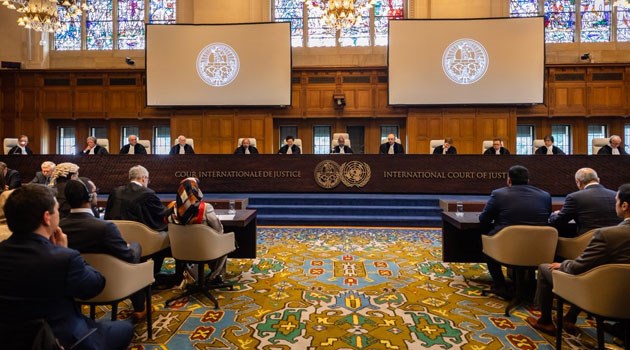UPDATE: Kenya pulls out of maritime case with Somalia, cites bias and COVID-19 impact




Source: Hiiraan Online, Sunday March 14, 2021

NAIROBI (HOL) – Kenya has notified the International Court of Justice that it will not participate in the maritime case against Somalia just a day before it is scheduled to begin. Kenya has cited the court’s perceived bias and its unwillingness to delay the case – for a fourth time – due to the pandemic as the main reason for withdrawing from the legal proceedings.
Kenya’s Attorney General, Paul Kihara Kariuki, notified the ICJ of the decision to pull out in a letter written on March 11 to Phillippe Gautier, the court’s registrar.”Kenya wishes to inform the court, through the Registrar, that it shall not be participating in the hearings in the case herein, should the same proceed from March 15, 2021, as presently scheduled,” the letter from Kenya’s attorney general states.”
Despite Kenya’s withdrawal, the ICJ can still proceed with the case and render a verdict since Kenya has already submitted its written arguments to the court.
Kenya, who referred to the move as “unprecedented in its history in relation to any international adjudication mechanism,” told the court that its latest legal team did not have adequate time to prepare for the case. Various Kenyan media outlets reported that top-level international lawyers were brought in to lead the maritime case in late February 2021, just weeks after the court rejected Kenya’s request to have the maritime delimitation case with Somalia postponed for the fourth time. Kenya added that the global pandemic had stripped it of financial resources to fund the case.
“The consequence of this is that Kenya and its legal team were deprived of the opportunity of having necessary preparatory meetings and engagements, ” Mr. Kariuki states.
In addition to the refusal to postpone the proceedings further, the letter to the ICJ cited further causes to justify its withdrawal from the international court.
Kenya objects to the hybrid format the hearings will be held in due to the current COVID pandemic, although some members of the court will attend the oral proceedings in person. Kenya argued that since its defence is based on demonstrations, the current format is “unsuitable for the hearing of a case as complex and as important as the present one.” The court said that the representatives of the parties involved in the case would participate either in person or by video link.
“Since the case is not urgent for any reason, Kenya least expected that the court would make this into the first cause to heard on its merits via video link, despite one party’s sustained, well-grounded objections, Kenya stated.
In building its case for withdrawal, Kenya wrote to the ICJ that one of its jurists, Abdulqawi Ahmed Yusuf, could potentially curry favour in support of Somalia. Yusuf, a Somali national was President of the Court until February this year .
“Kenya’s concerns and perception of unfairness and injustice in this matter are exacerbated by the inexplicable rejection of Kenya’s preliminary objections to this court’s jurisdiction and the dismissal of the request for the recusal of Judge Abdulqawi Ahmed Yusuf, given his past exposure, on behalf of Somalia, o the issues in this case. This is notwithstanding the fact that Kenya has taken extensive measures that are illustrative of its good faith and seriousness in defending this case, including by filing pleadings within the timelines directed by the court.”
Somalia launched legal proceedings against Kenya at the international court based in The Hague in August 2014 after talks with Kenya failed to settle the dispute. The case has fuelled the diplomatic fallout between the two East African neighbours.
Somalia dispatched its team led by Deputy Prime Minister Mahdi Guled last week. Guled expressed confidence that his country was winning the case.
“Our duty is to unite and defend our land and our real estate, which is a historic responsibility and the most precious legacy we will leave to future generations of Somalis,” said the deputy prime Minister before departing from Mogadishu.
The ICJ is tasked with deciding who has jurisdiction over the 62,000 square-mile triangle in the Indian Ocean, which is believed to be rich in hydrocarbons. Neither party can appeal the decision. The court will then rely on the UN Security Council, of which Kenya is a non-permanent member, to enforce the ruling.

